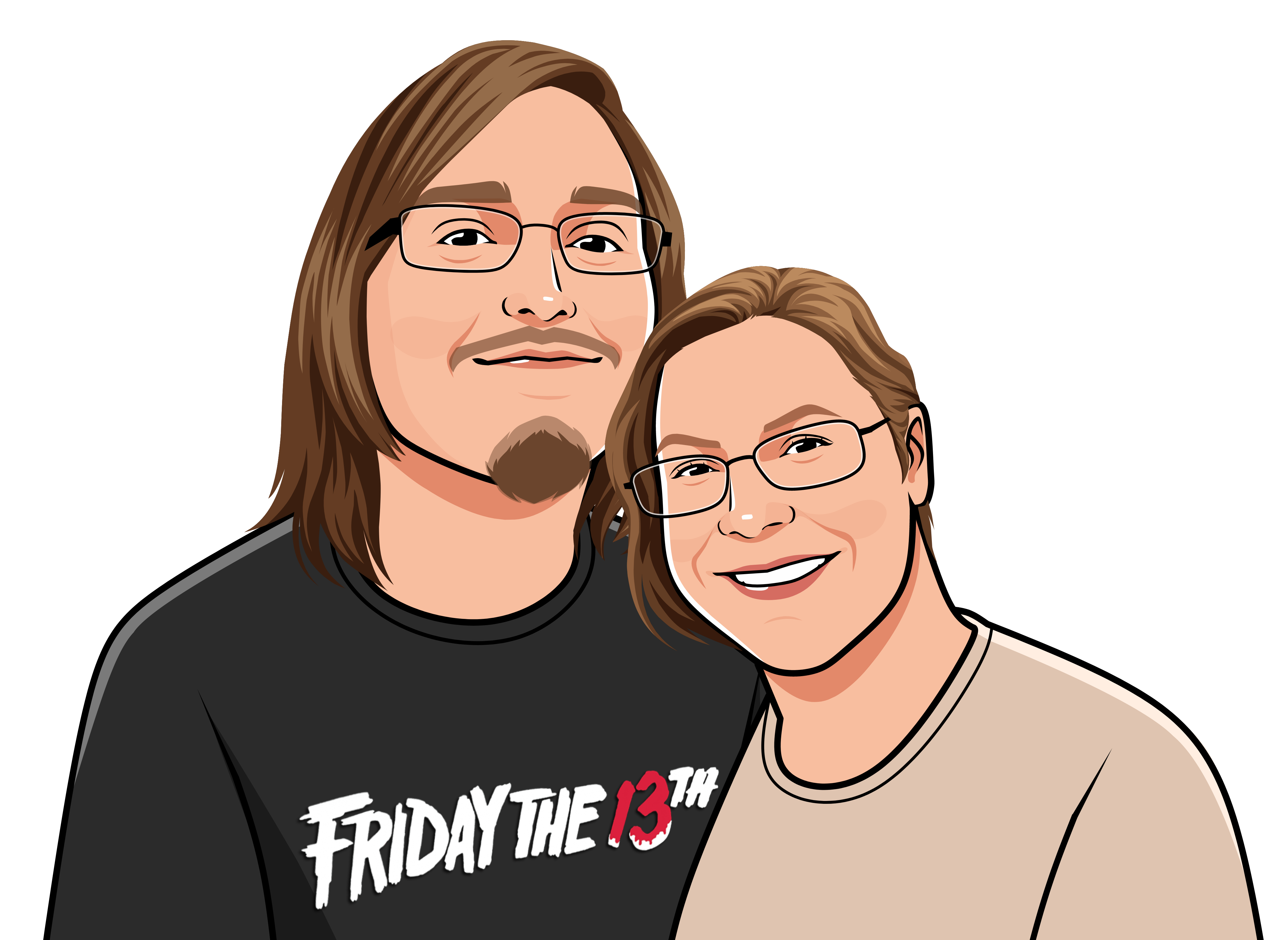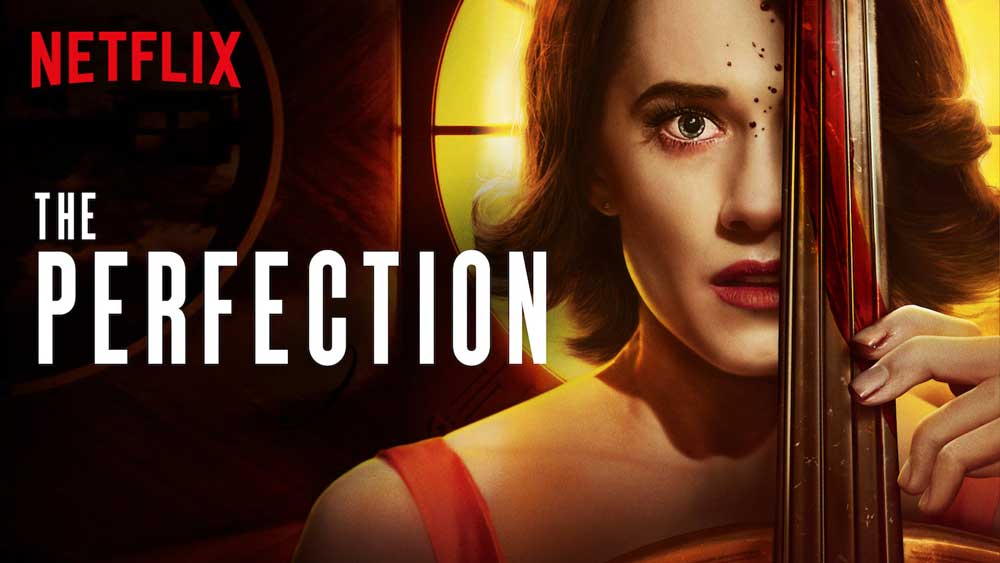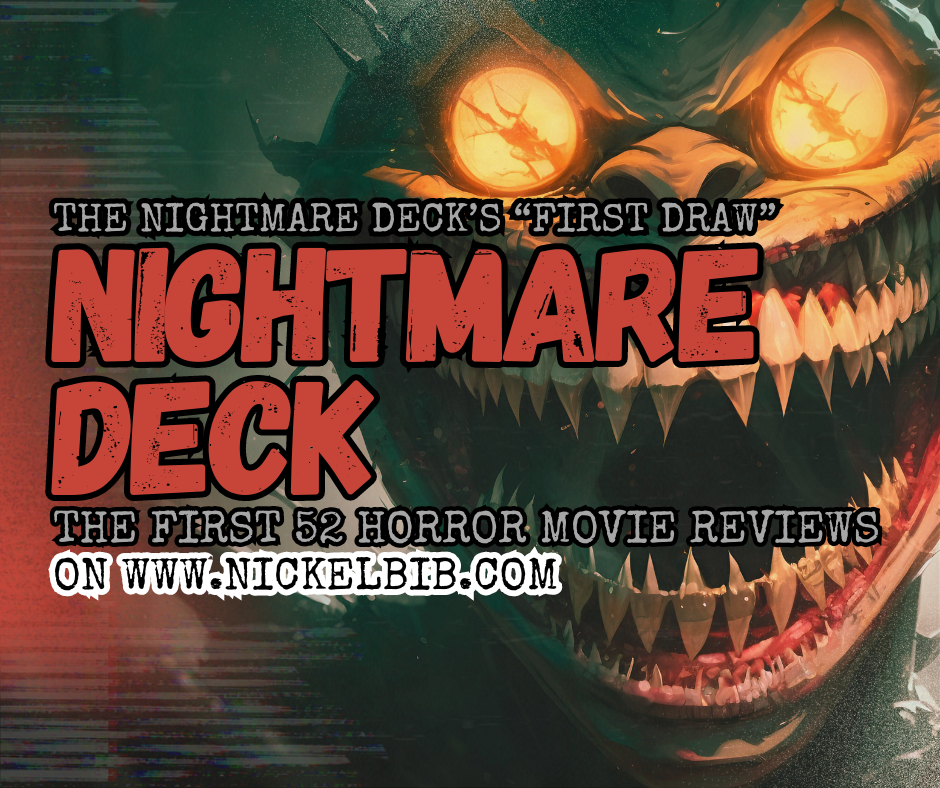Although for many, your debut feature film might be thought of as “Wolfcop,” your freshman effort is a film called 13 Eerie, a horror film about college students completing a field exam while on a deserted island. Unbeknownst to them, however, island once housed prisoners who were victim to illegal biological experiments. For a debut film, 13 Eerie has some very familiar faces to the genre, like Brendan Fletcher from Freddy vs. Jason, and “scream queen” Katherine Isabelle, who has appeared in beloved series’ like Hannibal and the Ginger Snaps series (and Freddy vs. Jason). 1.) How did this film come to exist and how would you describe the experience you had while filming it?
13 Eerie was a unique film for me – for many reasons. It was not a film that I developed or wrote; I was a “director for hire” thrown in at the last minute as a replacement! Which makes for a very weird experience when it is you first feature.
I got the gig because I had written a different zombie film that that production company optioned a few months earlier. They were going to make 13 Eerie first, and they hired me to assist the director on that film to prepare me for my making my own. Two weeks before cameras rolled on 13 Eerie they were in need of a new director, so I got a serious upgrade.
Prior to that, I had only done short films with micro-budgets, so doing a 3 million dollar zombie feature was a very big jump. It was a big learning curve, working on such a specific schedule with professional actors, stunts, pyro and so many practical effects. It was a tough production, but I came out the other end having learned so much. I learned what to fight for, and what I could live without in the filmmaking process. Major lessons that I still use to this day.
Of all the reasons a group of characters might be brought to a horror film’s setting, (A friend dares you to spend the night at a haunted house, ghost stories about a madman at the camp, wanting to shoot a horror documentary, etc.) the concept for 13 Eerie is one I hadn’t heard of. The characters are participating in an on-field college assignment where they are meant to apply forensics in-determining the cause of death and other helpful information. Is that something that drew you to the story written by Christian Piers Betley?
The premise is certainly one of the strongest aspects of 13 Eerie. Isolation is always smart in a genre film of this nature. Having nowhere for your characters to run. And since they were students being “tested” it made sense that they would not have their cell phones or laptops readily available to contact the outside world. Sometimes, a deserted island is the safest place in a horror movie scenario. Not this time!
One of my favorite scenes in the film involves Katharine Isabelle, a zombie, and a do-it-yourself bomb. What were the most challenging scenes to film for 13 Eerie?
I already had experience with practical effects since I came from a horror background (with my short films). So oddly, I felt more comfortable shooting gore gags than I did with big cast scenes.
Ripping off someone’s arm scared me less than having 8 actors on the screen at one time, so I’d say scenes with the full cast intimidated me the most at the start… how to block the scenes and get coverage of everyone, building a good rapport with the actors, things like that.
What do you believe were the highlights of the film and what are your thoughts on 13 Eerie looking back after over half a decade?
13 Eerie has some good action and some really great gore. The premise is fun, and the cast was game. On the downside, it doesn’t really subvert the genre or offer any real surprises. If it was something I developed from the start, it would probably have more humour in it. But as a first-time director for hire, navigating new waters, I was just trying to survive.
I haven’t watched 13 Eerie in a long time, but I remember the biggest gift it gave me was understanding the marathon of feature filmmaking. I am very thankful for the experience and all the lessons learned on that production!
The year after 13 Eerie, your interest shifted from zombies to werewolves, with WolfCop, a film that saw you return to the director’s chair and pen the screenplay. How was the experience different with structuring the story for yourself?
WolfCop was a much better experience and frankly, felt more like my “first feature” in so many ways. I had been developing WolfCop since 13 Eerie, partly based off that experience. I wanted to make another genre film but one that was more absurd and humorous.
I was also fascinated with werewolves (still am!) so it felt like a good fit. Developing the story was liberating. I intentionally kept it very contained, since I had no idea what the final budget would be. My goal was a conventional mystery meets a superhero origin story… but with some bizarre twists and tangents along the way.
Do you prefer having a screenplay you’ve written against a screenplay written by somebody else, do you feel more liberated to adjust things to your own vision or has that never been an issue for you?
As a general rule, I prefer to write the screenplay or at least be involved early on… mostly because it means I understand the text inside and out… the characters, their motivations, the point of every scene. When I write, I scrutinize every moment heavily, but it also makes me loose enough to know when and how I can deviate and improvise without messing with the overall structure.
That said, I really love working with material written by other people. A good script is a good script. It allows me to step out of my comfort zone and see the world in a different way.
Above all, I think it is important for a director have a strong connection to the material, regardless of who writes it. You have to make it “your own” when directing, even if you are working within someone else’s parameters.
You have to have an opinion and a vision.
WolfCop brings creature feature action and horror and blends it together with comedy and superhero components. The film follows a small town cop with a love for the bottle who awakens to find a pentagram carved into his stomach. Now, cursed, the small town cop transforms into a werewolf. The kicker here is, he still possesses his human intelligence and is able to continue his work as a police officer and a cop – WolfCop. What made you decide to write this film and were you inspired by other horror fare, whether it be werewolf-related or in the realm of comedic horror?
I had no idea if I would get to make more than one film, so I threw everything I love into the idea of WolfCop… small town life, monsters, superheroes, weird characters, subversive humour. It is everything I know and everything I was raised on, from horror films to comic books.
At the time I wrote it was really missing old school werewolf films. Practical effects! A man in a suit! One of my favorite films growing up was Teen Wolf, but as I got older and started watching more R rated films, I daydreamed about what the life of a “Teen Wolf” would be if he was in a darker film. So that bled into this concept, for sure.
Something I like to see with a lot of horror comedies is when the comedy feels gauged in itself, and doesn’t break its own rules, what was your approach to creating WolfCop from a tonal standpoint in-terms of balancing its comedy and its story overall?
You are right, there has to be a set of rules. The tone of a film like WolfCop is the hardest and the most important thing. I took it very seriously. Only certain characters can be over the top in terms of performance. There has to be a logic to it. When in doubt, I shot alternate takes of certain scenes and decided those moments in the edit. I hate when horror comedies wink at the audience too much. You have to exist in your own world and take that world seriously. Otherwise the audience won’t!
In 2017, Wolfcop was followed with the sequel Another Wolfcop, a film hinted toward at the end of the first film. What was your mission with Another Wolfcop and how did you go about finding a new adventure for the titular protagonist?
I went straight from WolfCop into writing Another WolfCop, so those two films were five years of my life, give or take! The lessons learned in WolfCop directly impacted the sequel. It was clear to me that we could push things further, so we really let our “freak flag” fly.
I really wanted more Lou, Tina and Willie in part 2. The producers really wanted it to be “all killer and no filler”. So the sequel became both absurd and relentless. It’s really fun film, I think. The origin story is out of the way, so it’s like the first film on speed.
Also, even more than the first film, it is a love letter to practical effects filmmaking.
Were there any new obstacles you faced while filming Another Wolfcop that you didn’t face with the first, like fan expectation? Or did you feel like you had a better grasp on what you wanted to do altogether?
Another Wolfcop was all obstacles, all the time! I certainly had fan feedback to consider, along with increased producer input and my own personal desire to elevate the first film in every possible way.
We bit off way more than we could chew. We had the same amount of shoot days on #2, so every day we were trying to accomplish impossible tasks like ten pages of dialogue AND a car chase or a head explosion or a tank shooting WolfCop on a hockey rink. It was literal madness, like a circus. By the time it was done I was longing for a project about two people in a quiet room. That said it was also really, REALLY fun.
The theatrical poster for Another Wolfcop is a riff on Sylvester Stallone’s “Cobra,” in what ways and how did eighties films inspire the WolfCop series and what made you decide to incorporate them?
The 80s were a huge influence on the WolfCop style, without a doubt. I am a child of the 80s. So my touchstones for films like this are Lethal Weapon, Gremlins, Teen Wolf, Strange Brew, and so on. Also, most small towns feel like a time warp from a previous decade and I wanted that feeling.
The posters for both films were done by Tom Hodge aka The Dude Designs. I was not involved in picking the Cobra design for #2 but of course, like everyone else, I love it!
Wolfcop is a character that feels ideal for the cult-horror genre, with a distinct visual and stylistic flare that feels like an homage to the b-movie movies of yesteryear. Obviously, the natural progression in the series is “Wolfcop the Third,” but do you have any other plans in expanding the world? Whether it be a WolfCop graphic novel, or, hypothetically, a ZombieDetective, or something that feels in the same vein?
We actually made a WolfCop comic series with Dynamite. It is out now! I’d love to do more within the world, in various mediums, but time will tell. Like I said… WolfCop was 5 years of my life, so to carry on with it I’d want the next incarnation to be special and worthy. I do think there is far more fun to mine in that world. I’d love to do a third film or even a TV series.
Likewise to the differences between 13 Eerie and WolfCop, your fourth film SuperGrid feels very unique. The film is set in an apocalyptic wasteland, and follows two brothers as they attempt to venture out into the danger to deliver cargo. How was the approach to creating SuperGrid different than your approach to a full-fledged horror?
SuperGrid, like 13 Eerie, was a “Director for hire” situation. Hugh Patterson, one of the producers of WolfCop had been developing it for years. When he secured funding, he approached me about directing. I was reluctant at first, because it felt a little too similar to WolfCop in some ways (a genre film, set in Saskatchewan, starring Leo Fafard) and it was also way too ambitious for the budget. Even the version we shot was too ambitious!
But I really like working with Hugh, so said yes and I made it my personal mission to respect the source material NOT make it too “Lowell weird”. I didn’t want to load it with horror elements. The script itself was actually quite earnest. Honestly, my gut instinct would’ve been to make that film a lot weirder, but after 2 back to back WolfCop films I felt the need to try something different so it was a cathartic experience.
Leo Fafard loses the fur and becomes Jesse in the lead role for SuperGrid, how did your relationship with the actor begin and do you prefer surrounding yourself with familiar faces when you shoot your films?
I told Leo early on I was going to push him for a really strong performance, and he delivered. Leo was involved with Supergrid years before I came on. I decided why not bring in “ringers” like Amy Matysio and Jonathan Cherry, too. But we took SuperGrid as an opportunity for everyone to try something a little different. Not just me, the cast as well.
I like the familiarity and comfort of an actor that I have a shorthand with, but I also love working with new actors for the first time. You never know how things will go, and there is an energy and excitement in that. I also really love working with actors who are far more experienced than me and who I can learn from.
A zombie film, an apocalyptic action film, and a duo of b-movie superhero films about a wolf-man, you have built a diverse and crazy resume to say the least. What other experiments would you like to pursue, whether it be in the horror or fantasy genre, or something completely out of the left-field?
I want to do all kinds of films! I think you quickly get pigeon-holed when you do one style twice in a row like I did with WolfCop, but there is no genre I don’t want to try. I’d love to do a western. A musical. A fantasy film. A drama. A straight up thriller. Bring it on!
Is there a particular movie or film director that has inspired you most as a filmmaker? How do you apply their influences into your films?
Many directors have influenced me. There are too many to list, but I’d say the ones I “grew up on” were Richard Donner, John McTiernan, Sam Raimi, Alfred Hitchcock and Francis Ford Coppola. Their filmographies are hardwired into my brain.
I am sure I steal from them in everything I make from shot choices right through to editing and overall style… be it subconscious or intentional!
Thanks for your time, and if you have anything else you want to talk about in these closest moments, whether it be an anecdote or a plug for a new project, I am certain Nickelbib readers are more than curious to hear it.
Thanks! In addition to film projects, I’ve started to develop comic books. My first venture, Atomic Victory Squad is out now!






GIPHY App Key not set. Please check settings